Regional Security Coordinators (RSCs) evolve into Regional Coordination Centres (RCCs). The Clean Energy Package (CEP) foresees an enhanced institutional framework via the establishment of the RCCs to strengthen the regional coordination of TSOs in Europe.
The RCCs shall complement the role of TSOs by performing the tasks of regional relevance assigned to them. The TSOs remain responsible for managing electricity flows and ensuring a secure, reliable and efficient electricity system.
As an RCC, Coreso becomes then a regulated entity that will progressively have to meet the additional requirements set out in the European Regulation on the Internal Electricity Market (Regulation 2019/943). Read more information
Our History
From a Memorandum of Understanding to Regional Coordination Centres: 15 years of regional coordination in continental Europe
From a Memorandum of Understanding to Regional Coordination Centres: 15 years of regional coordination in continental Europe
Founded in 2008 in Brussels, close to the European Commission, Coreso launched its operations in February 2009. At that time, it was one of the first technical coordination centres in continental Europe shared by multiple TSOs.
At the ENTSO-E Assembly in late 2015, the European Transmission System Operators (TSOs) approved and signed an all-TSO Multilateral Agreement for Regional Security Coordination Initiative (RSCI)-based TSO cooperation. With this mandatory contractual framework, TSOs across Europe have committed to establishing regional coordination services, and setting up or appointing Regional Security Coordinators (RSCs) to perform these services.
The European network codes and guidelines then reinforced regional coordination by enhancing the role of RSCs. No longer voluntary initiatives, the RSC roles and responsibilities were totally formalised thanks to regulatory and contractual frameworks.
On 1 July 2022, the Regional Security Coordinators (RSCs) evolved into Regional Coordination Centres (RCCs), as foreseen by the Clean Energy Package (CEP). Additional tasks have been added to the RCC tasks portfolio to strengthen the RCC key coordination role and further enhance regional cooperation in Europe.
Coreso in key dates
1 July 2022
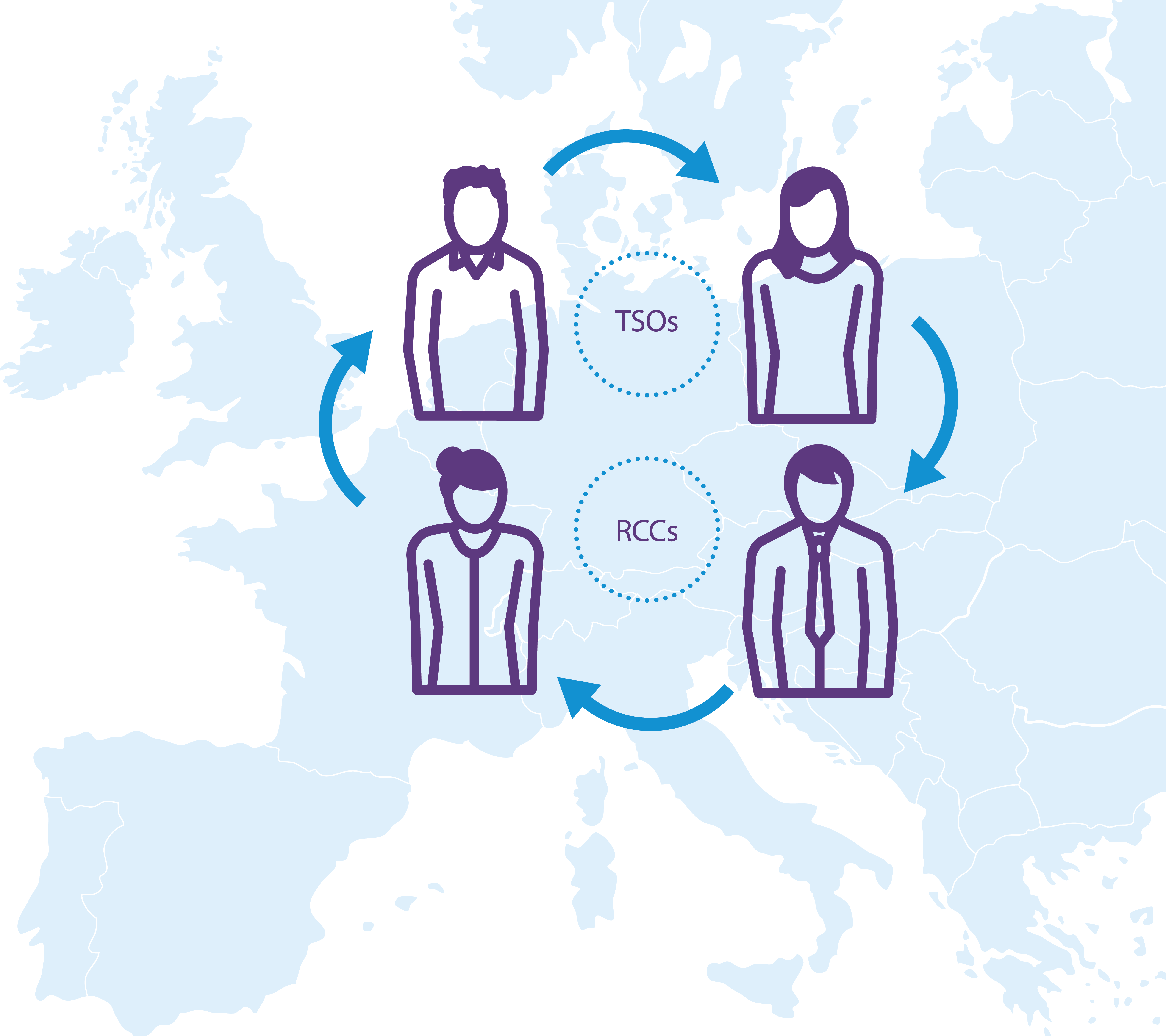
July 2021
ENTSO-E publishes the Regional Coordination Assessment Annual Report to fulfil the obligations from Article 17 of the Regulation (EU) 2017/1485 on establishing a guideline on electricity transmission system operation (SOGL). The report documents the implementation and operational monitoring of the Regional Coordination services, performed by RSCs.
15 January 2021
The “RCC Establishment Provisions” is approved by all the 16 National Regulatory Authorities (NRAs) from the Central Europe System Operation Region (Central SOR). Establishing Coreso and TSCNET as Regional Coordination Centre (RCC) in Central SOR, it determines the allocation of tasks between these two companies.
December 2020
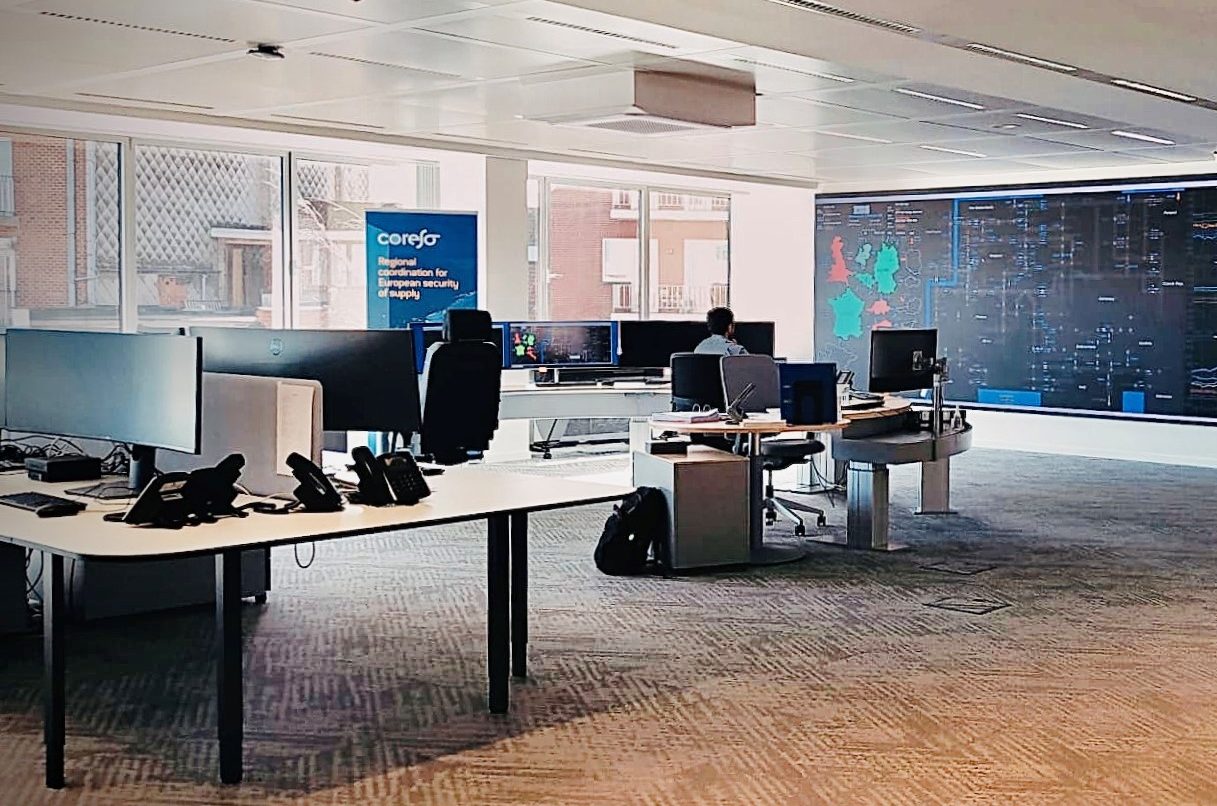
As part of Coreso´s commitment to operational excellence, the Coreso coordination room is upgraded and future-proofed. Refurbishment works were performed from 3 November until 23 December 2020 to improve operational processes and to enable our operators to perform their processes with a higher efficiency.
March 2020
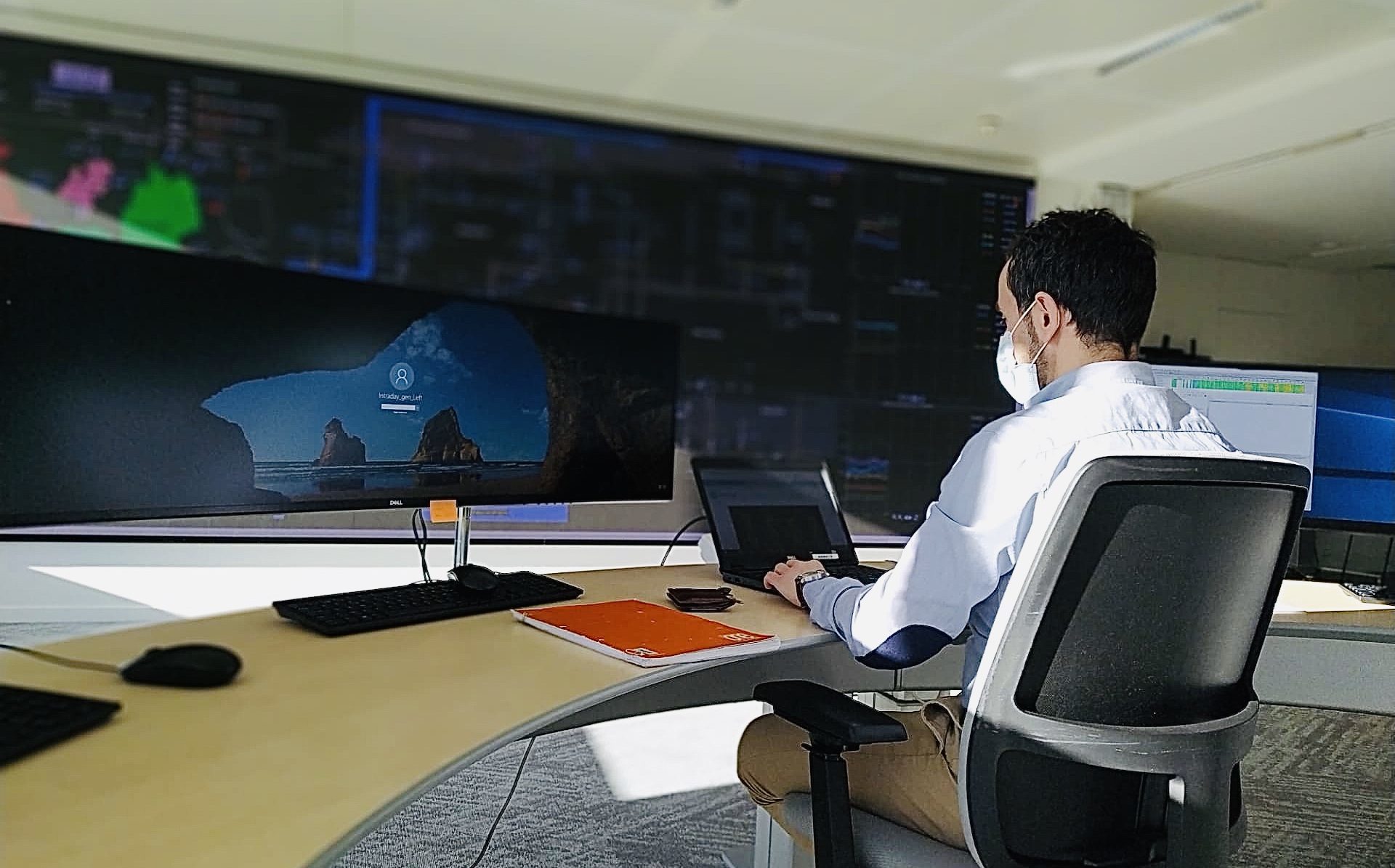
Coreso is hit by the coronavirus pandemic just as the whole world in early 2020.
Following the implementation of the lockdown in Belgium, a decision is taken mid-March to drastically reduce the staff physically present at Coreso while Operations activities initially continued on-site, since Coreso is considered an essential and crucial service critical to the nation. Read more information
5 July 2019
The Clean Energy Package (CEP) came into force, requiring Regional Coordination Centers (RCCs) to be built on the positive experience of RSCs. RSCs will therefore evolve into RCCs by mid-2022, leading to a series of evolutions regarding organisation, governance rules and procedures.
Under the CEP, the standard RSC services will be transferred to RCCs. The services that TSOs will identify in the future as necessary for regional coordination – such as the management of critical grid situations – and new tasks identified in the CEP will also become part of the RCCs’ portfolio, while other tasks mentioned in the CEP will only be part of the RCCs’ portfolio if delegated by the TSOs.
To get more information about the CEP, please consult the ENTSO-E and European Commission websites.
16 October 2018
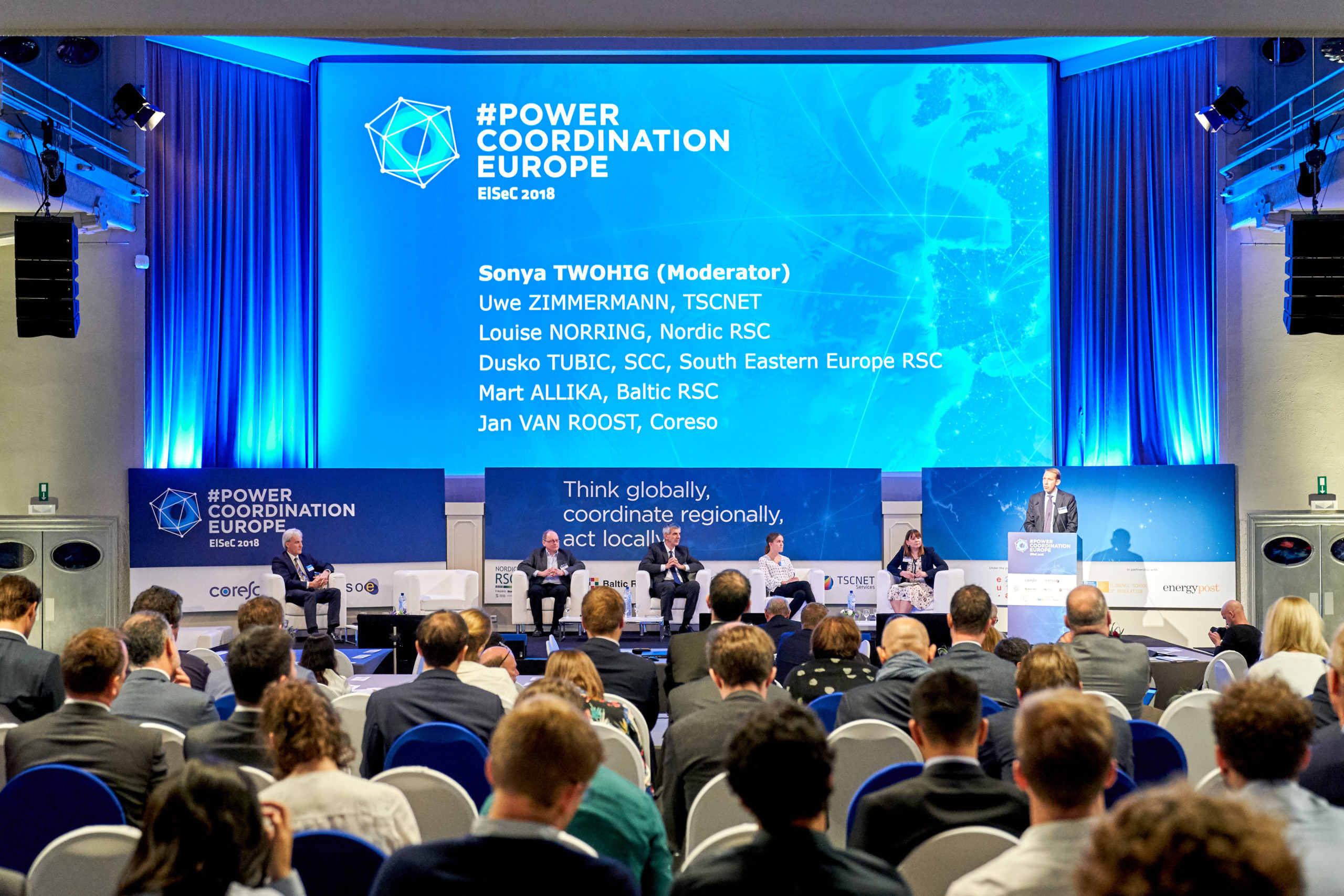
Under the title #PowerCoordinationEurope – “Think globally, Coordinate regionally and Act locally”, the second edition of the ElSeC (ELectrical SEcurity Coordination) conference was organised and hosted by ENTSO-E and Coreso, in partnership with the Florence School of Regulation and the Energy Post. Over 250 participants from all of the different fields of the energy industry attended the conference. They contributed to the lively discussions throughout the day and had a unique opportunity to explore the European electricity ‘stellar system’ with its local, national, regional and European dimensions, its market, operations, planning and innovation galaxies, with IT as the vehicle connecting the dots between them.
February 2018
An RSC working table is established as part of the regional power coordination perspective.
Three different workshops were then organized: the first in Munich in April and the following ones in Copenhagen and Hamburg. The managers of the five European RSCs met with the common goal of ensuring alignment between RSCs and providing support to the ENTSO-E RSC Project, focused on the delivery of the best possible service levels for the TSOs. The long-term goal is to have regular meetings with all the European RSCs in order to exchange views on common challenges. These fruitful meetings represent the concrete output of earlier discussions between Coreso and TSCNET Services with regards to the enhancement of inter-RSC coordination and RSC cooperation on development issues. They are an illustration of the fact that enhanced cooperation between RSCs will be key to reaching our common target.
15 December 2017
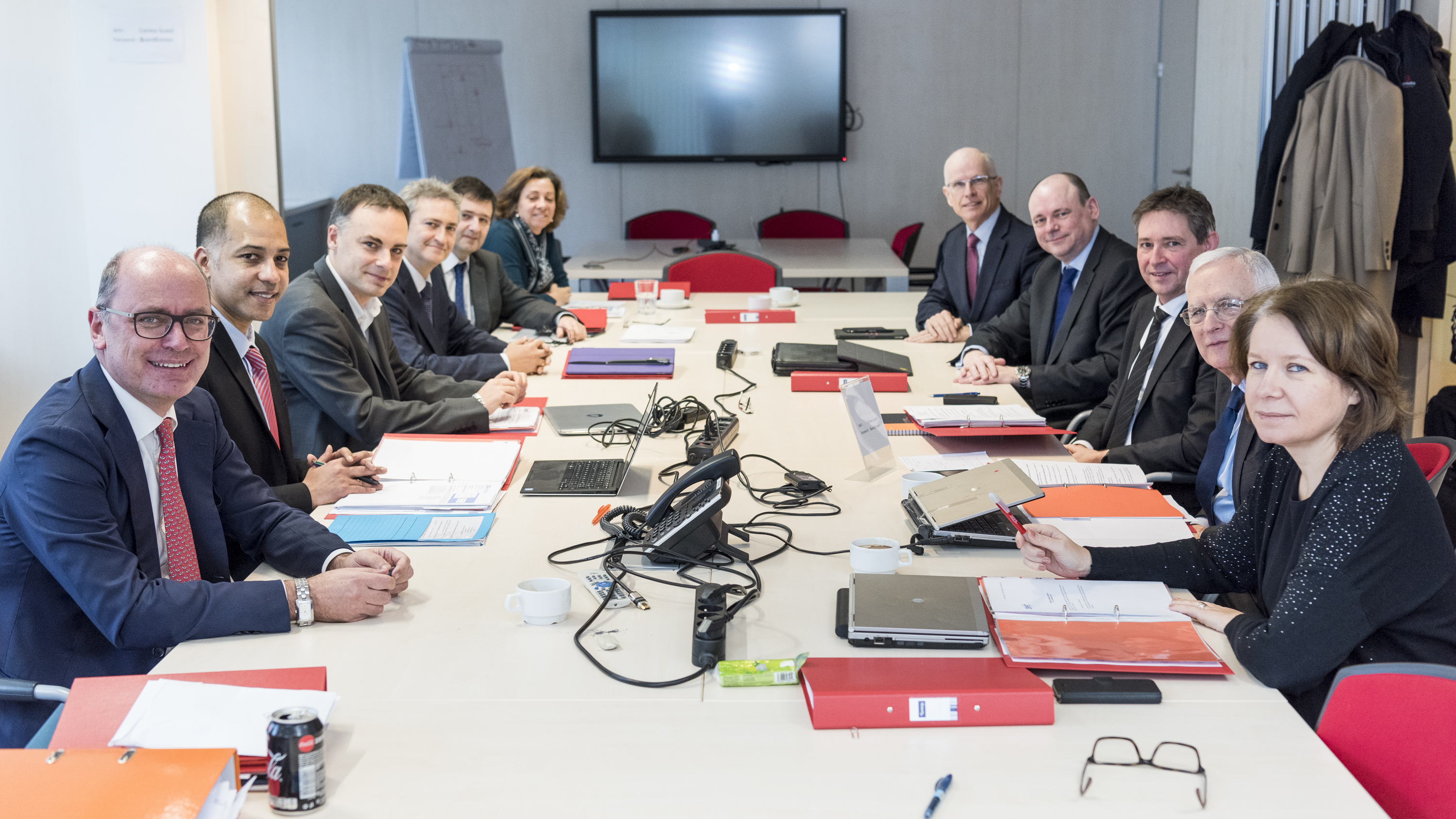
Eirgrid and SONI, the two grid operators on the island of Ireland become a shareholder in Coreso. They join their European counterparts from Belgium (Elia), France (RTE), the UK (National Grid), Italy (Terna), Germany (50Hertz), Portugal (REN) and Spain (REE).
28 October 2016
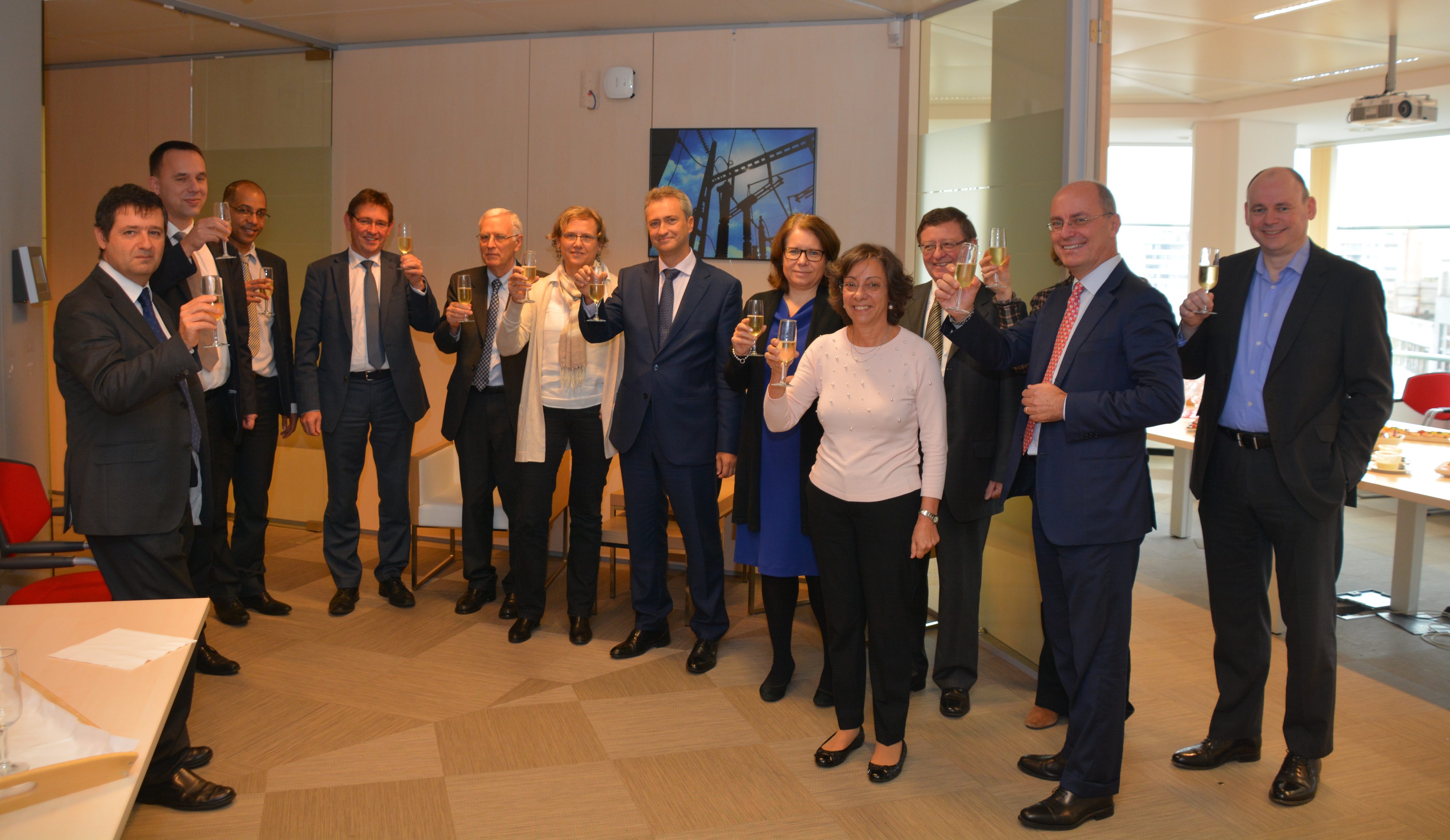
Spanish high-voltage transmission system operator (TSO) REE is now a shareholder in Coreso, joining TSOs from Belgium (Elia), France (RTE), the UK (National Grid), Italy (Terna), Germany (50Hertz) and Portugal (REN).
Late 2015
Since late 2015, Coreso holds the status of Regional Security Coordinator (RSC) as per the regulatory framework of the European Network of Transmission System Operators for Electricity. This framework clearly outlines five mandatory services that each RSC must provide to its shareholders and requires every TSO within the European interconnected area to be part of an RSC. Five services must be developed and implemented by the RSCs to facilitate, assist and improve the operations of Europe’s TSOs, from one year-ahead to intraday: Common Grid Model (CGM), Coordinated Security Analysis (CSA), Coordinated Capacity Calculation (CCC), Short Term Adequacy (STA) forecast, and Outage Planning Coordination (OPC).
19 November 2015
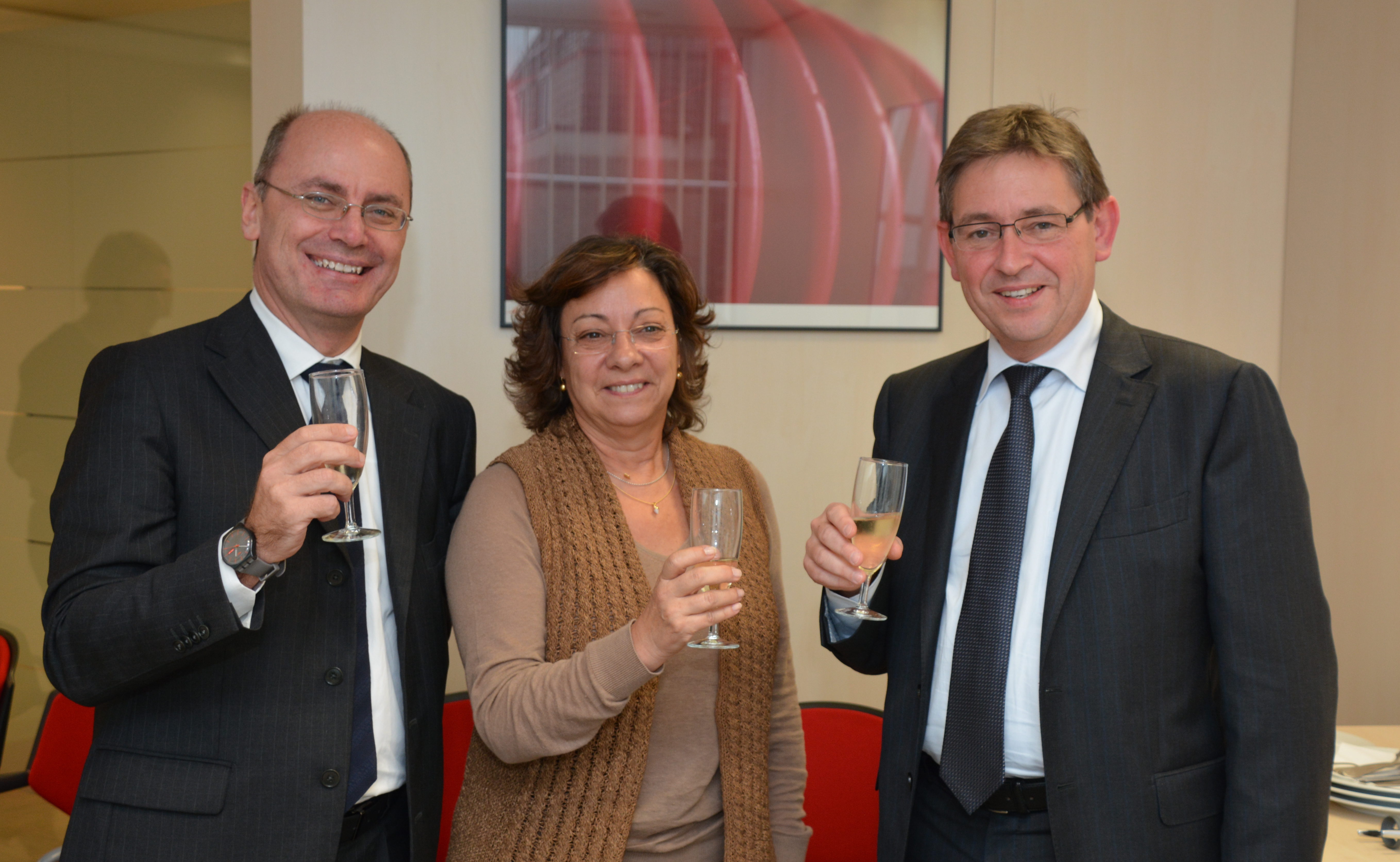
REN, the Portuguese TSO, joins the ranks of Coreso’s current shareholders, its fellow TSOs Elia (Belgium), RTE (France), National Grid (United Kingdom), Terna (Italy) and 50Hertz (Germany), by becoming a new shareholder.
November 2013
The European Awareness System is established: technical implementation of the EAS (ENTSO-E Awareness System) at Coreso (read access via the RTE connection to EAS) is completed. Coreso can now also view the most important real-time parameters for the European electricity system.
October 2012
Renewables data provision: along with a renewable energy data provider, Coreso now has a view of both wind and solar generation forecasts across all of Continental Europe and Great Britain.
December 2011
Coreso launches a new service to support its shareholder TSOs in the event of major disruption. Coreso operators have access to several sources of real-time information (remote access to the SCADAs of its shareholders and DADS). As such, they have a more extensive overview when monitoring the grid than individual TSOs and can anticipate Europe-wide issues.
26 November 2010
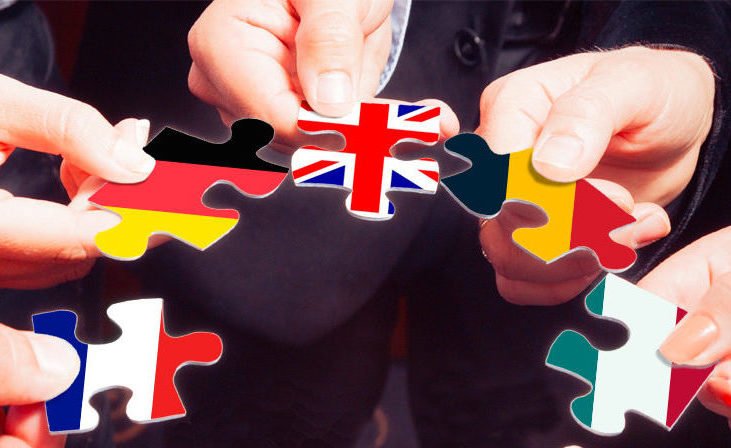
Terna and 50hertz join Elia, National Grid and RTE in Coreso. Coreso extends its coordination services to its new shareholders. Read more information.
1 July 2009
Coreso starts operating 24/7 with experts hired from participating TSOs at its Brussels-based centralised coordination centre. Coreso provides TSOs network security analyses and monitors the grid every 15 minutes in addition to day-ahead forecasts. Read more information.
15 May 2009
Great Britain TSO National Grid joins Elia and RTE in Coreso. Each of the three TSOs – Elia, RTE and National Grid – now holds one-third of Coreso’s capital. Read more information.
16 February 2009
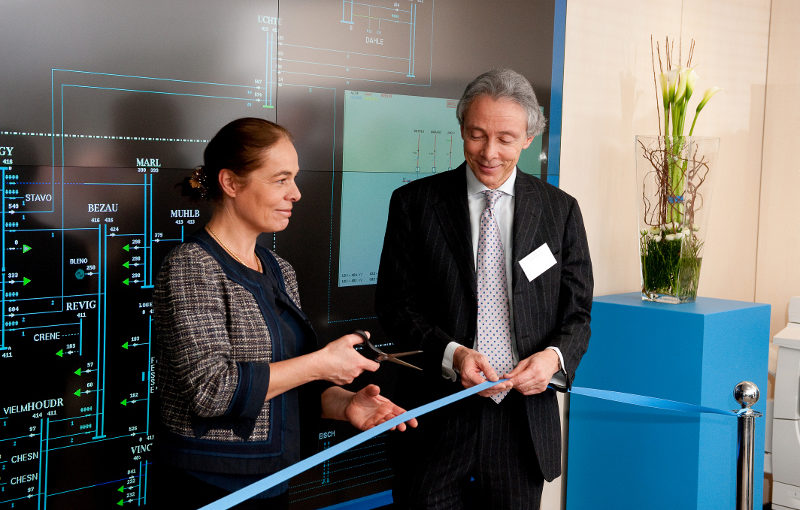
Coreso launches its operational activities in a centralised coordination centre in Brussels. Every afternoon, seven days a week, Coreso provides forecasts of electrical flows in the CWE area (France, Belgium, Germany, the Netherlands and Luxembourg) for the following day (so-called “D-1 activities”). Read more information.
19 December 2008

Coreso (COoRdination of Electricity System Operators), the first regional technical coordination centre for electricity bringing together several TSOs, is incorporated by French transmission system operator (TSO) RTE and Belgian TSO Elia. Read more information.
6 June 2007
A Memorandum of Understanding (MoU) is signed on 6 June 2007 by the German, Belgian, French, Luxembourg and Dutch governments and the actors involved (TSOs, power exchanges, regulators, market players) in support of the regional CWE initiative. The Memorandum of Understanding aims to introduce market coupling between the CWE electricity markets and improve coordination between TSOs to ensure security of supply in Europe.
4 November 2006
Following serious electrical power disruption in Europe 15 million people are left without power due to a lack of coordination between Transmission System Operators (TSOs) in the Central Western Europe (CWE) area. The European Commission, together with TSOs, starts looking into ways to improve coordination between TSOs to guarantee the safe operation of the interconnected system with a view to maintaining security of supply.

-
The Coreso's office is located in the heart of Brussels, at just a stone's throw from the European Commission.
-
Avenue de Cortenbergh 71
1000 Brussels
Belgium
Copyright © 2024 CORESO | Credits | Cookie policy | Privacy Policy | Terms of use | Webdesign ALYS


